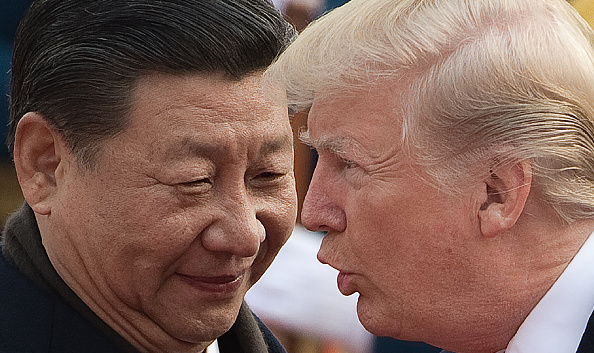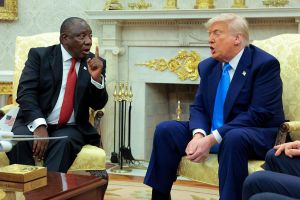Know this: It doesn’t matter what happens during what can only be described as ‘dinner diplomacy’ between Donald Trump and Xi Jinping at the G20 — good, bad or breakthrough. That’s because the course of US-China relations — a complex relationship that blends cooperation, competition and geopolitical slugfest — is set in stone.
The reasons are obvious. From tensions all around China’s near seas, to the final status of Taiwan, to the flow of hundreds of billions of dollars in trade to an arms race in Asia that will soon feature sci-fi like hypersonic weapons the future is frighteningly clear. There are simply too many areas of strain to save one of the great quasi-alliances of the 20th century, a partnership that helped bring down the Soviet Union, brought hundreds of millions of Chinese out of poverty and made countless American industrialists rich.
In short, America and China are headed for a showdown — the only question is where and over what.
In retrospect, such a clash seems almost inevitable. Once the Soviet flag stopped flying over the Kremlin, the main reason for US-China cooperation and not competition had passed into the history books. Thanks to a strange mix of trade — a relationship now worth over $700 billion bilaterally — and America going to war time and time again in the Middle East, Washington and Beijing received multiple reprieves in what the ages and realist international relations theory tells is fated: the timeless geopolitical struggle of who will be the global hegemonic power.
And while history and circumstance point to perhaps decades of dangerous times ahead, there is a nearly forgotten component to this clash of civilizations: the role of the American people and how they perceive China. In fact, despite all of the hot rhetoric coming out of conservative media over the last few years, according to a recent survey by the Chicago Council on Global Affairs, only 39 percent of Americans ‘consider the development of China as a world power a critical threat facing the United States’, a stat according to the council that is mostly unchanged since 2006. Furthermore, in an earlier survey this year by the same group showed that few Americans ‘felt that the development of Chinese economic (31 percent) or military (39 percent) power poses a critical threat to the United States’.
So why the disconnect from D.C. think-tank land, TV pundits and mainstreet? Walk into any American department or electronics store or make a purchase from Amazon and check out the ‘made in’ label — it’s hard to be angry at a nation Americans purchase $500 billion in exports from. It’s also hard for someone in Savannah or Detroit with little connection to events in Asia — and probably can’t find the South China Sea or Taiwan on a map nor give a damn — to fear a rising China.
But history is a funny thing, and it reminds us that tensions can spawn a crisis when you least expect them. Something tells me that is our fate when it comes to the delicate diplomatic dance taking place between Washington and Beijing.
Harry J. Kazianis is Director of Defense Studies at the Center for the National Interest.

























